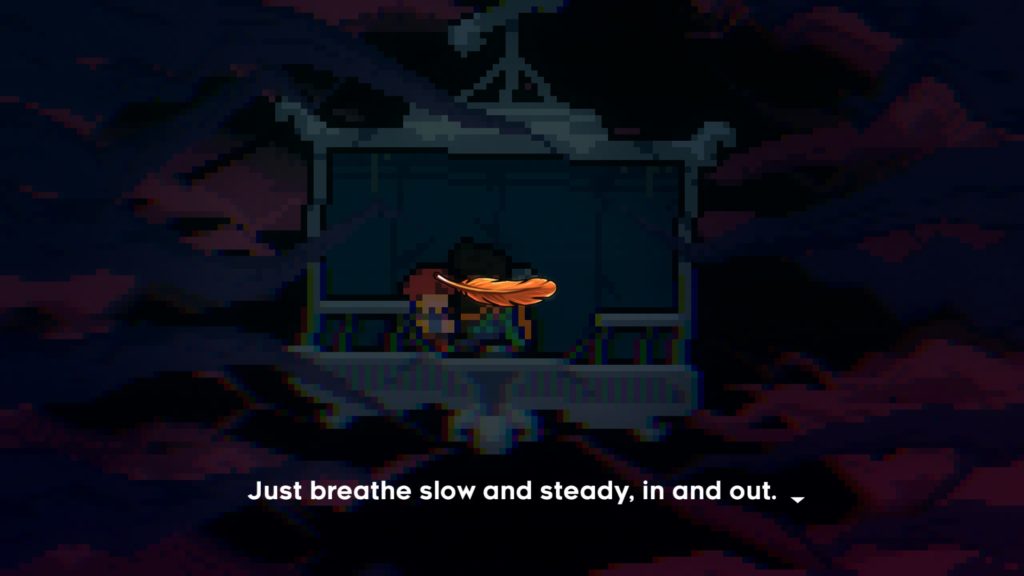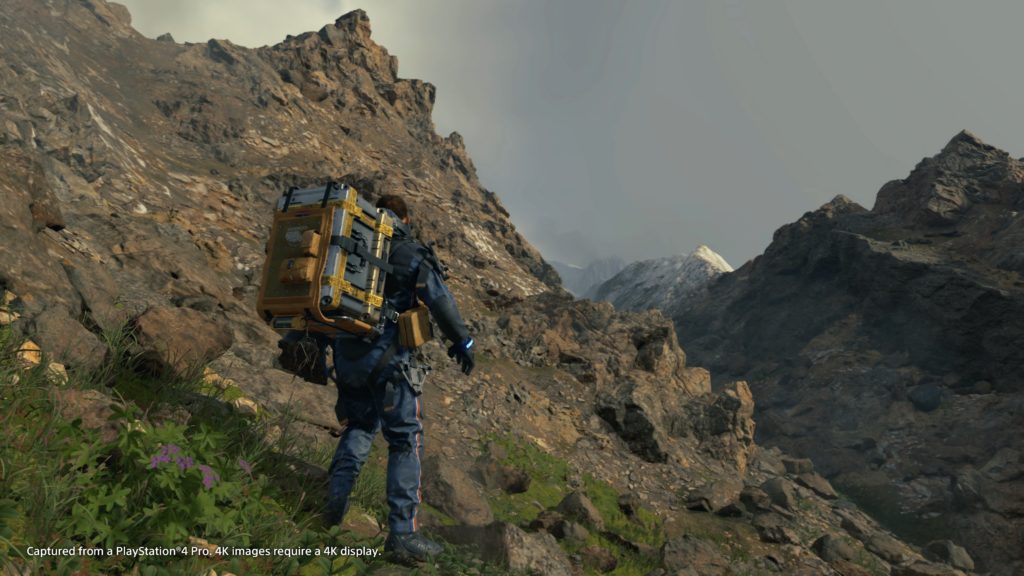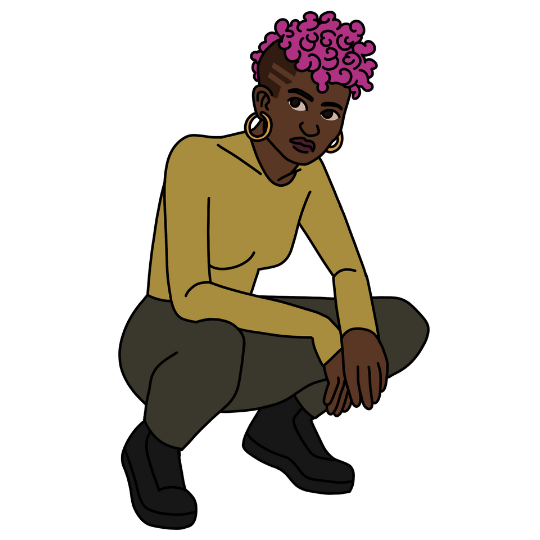Mindfulness and Gaming: Unlikely but Wonderful Companions by Ben Huxley
Posted: 16 Mar 2021Mindfulness isn’t synonymous with meditation; with sitting on a cushion with your eyes closed, focusing on your breath, or chanting a mantra. They are good ways to practice, but mindfulness as a whole is more than that.
It is a means of living all aspects of your life with more clarity and awareness. According to the NHS website, mindfulness means “knowing directly what is going on inside and outside ourselves, moment by moment.” This awareness can transform our relationship with our daily activities quite profoundly; from washing the dishes, to the long commute to work, to the time we spend playing video games.
The opposite of mindfulness is mindlessness – our lives set to autopilot, going through the motions (or lack thereof) while we worry about tomorrow or ruminate on yesterday’s embarrassing conversation. In this state, we give little attention to what is in front of us. The following scenario may sound familiar: you arrive home, head swimming with worries and regrets. You decide to play a game, and sit down with the aim of having a distracting, fun, challenging, or satisfying time. Yet none of those words describe your experience. Perhaps you keep losing, over and over again, in the same way, as your teeth grit. Or maybe you find yourself on a long and boring side quest, becoming restless and bored at the lack of stimulation. There’s even a chance that you’ll finish gaming, get into bed, and have very little memory of what just occurred.

The blank in your memory can be explained quite easily. It’s because you weren’t really there; you were in your head the entire time, captured by thought. It happens in other activities too. How often do you read a page (or three) of a book, before realising that you haven’t actually been reading at all? Or put on a song, hoping to be soothed by the lyrics, rhythm, and melody – only to realise the song has finished and you weren’t listening? This isn’t to shame my fellow daydreamers (if it’s any consolation, I’m sure I read somewhere that it’s a sign of intelligence), but to let you know that with mindfulness we can avoid being hijacked against our will, and only have a good long think when we want to – on our terms.
It’s hard to express this without sounding hackneyed, but for many of us gaming is more than a hobby. It’s time with our favourite characters, in our favourite worlds, with stories, music, and art that touch the heart. It’s also friendship, community, escape, distraction, challenge, and fulfilment. Are there any better reasons to be more present and mindful as we game?
There are, in fact, some games that encourage us to be mindful. 2018’s Celeste is one such game. Celeste actively encourages us to fail in order to learn. It differs from the norm, where dying feels like punishment. In a meta sort of way, the game encourages us to take deep breaths and visualise a feather floating on our exhalations when the pressure gets too much. This is because the protagonist – Madeline – suffers from panic attacks, and a side character teaches her this technique to deal with them. It encourages us to stop, think, and evaluate the situation, rather than diving in for the hundredth time to do exactly the same thing. Celeste is a tricky game, too, so playing mindlessly isn’t an option. The gameplay is simple; run, jump, dash, climb – but timing and precision are everything.

We shouldn’t reserve our presence of mind for tricky games like Celeste, however. If we want to truly appreciate the game in front of us – be it a battle royale or a visual novel – we should always aim to be present. When we’re on autopilot, we’ll find ourselves making the same mistakes again and again. We also find ourselves missing out on the potential beauty in front of us.
Much like missing a song or skipping the pages of a book, it’s easy to zone out during a particularly easy, or “boring”, part of a game. Perhaps you’re grinding in an RPG, hacking away at unchallenging monsters as a means to an end – telling yourself you’ll enjoy this game as soon as you’ve reached level fifty. Or maybe you’re partaking in a side quest in which you have to walk for an hour to, say, deliver a package to the next town. You grow impatient waiting for the fun to return, and eventually zone out and return to autopilot. The game doesn’t require your full attention, anyway.
In zoning out, however – be that daydreaming or having one eye on social media – we’re arguably missing the best parts of the game. Isn’t the whole point of an RPG to increase and develop the stats of your character? If you find yourself grinding in a laborious and repetitive manner, ask yourself if there’s a more interesting way to do this. Are there tougher enemies that, realistically, you could face? Or are you focusing solely on strength, when there may be a more interesting stat to work on? When we stop and think, better options become available – the easy choice is rarely the most fulfilling.
There is a lot to be said for “boring side quests”, too. Hideo Kojima’s mind-bending Death Stranding has been branded a “walking simulator” by players and critics alike. The protagonist is a deliveryman in a post-apocalyptic America, so it shouldn’t be a surprise that there’s little action and an abundance of travel – but this isn’t a bad thing. Walking or driving from A to B in Death Stranding can be an exhilarating experience if we remain focused, aware, and appreciative. The developers have done a fantastic job of creating such a world, and with this in mind as we play, so much more beauty and awe is revealed to us. I noticed that a lot of the game’s scenery reminded me of the Snowdonia mountains in North Wales, where I often walked in my youth. I know that this nostalgic revelation wouldn’t have come to me if I hadn’t been fully immersed in the game.

Boredom is an emotion that we have to catch first, however, before we realise it’s colouring our experience. The same can be said of stress and frustration. There will be times in which we have these emotions before we boot up a game, and our session is negatively affected. Mindfulness can help with this, too. If we realise that we’re bored or restless before we start a long and eventless walk in a game, we can note and acknowledge this – we can ask ourselves if the game is truly boring, or are we projecting our boredom? The same can be said of stress and frustration. Is it really such a straining game, or was there already a build-up of pressure in your chest?

When we train ourselves to be mindful, it flows into every aspect of our lives. Not only does it bring clarity to experiencing games, but also to our reading habits, appreciating music, commuting to work, washing the dishes, conversing with loved ones, managing your money, studying, exercising. When we’re more mindful – when we’re out of our heads and experiencing the present as fully as possible – we find beauty and joy in the most unexpected of places. It can be a challenging enterprise, but there are few things more worthwhile.

Ben is a freelance writer based in North Wales. He believes games are one of the most important and undervalued art forms, and aims to share their value to as many people as possible.

